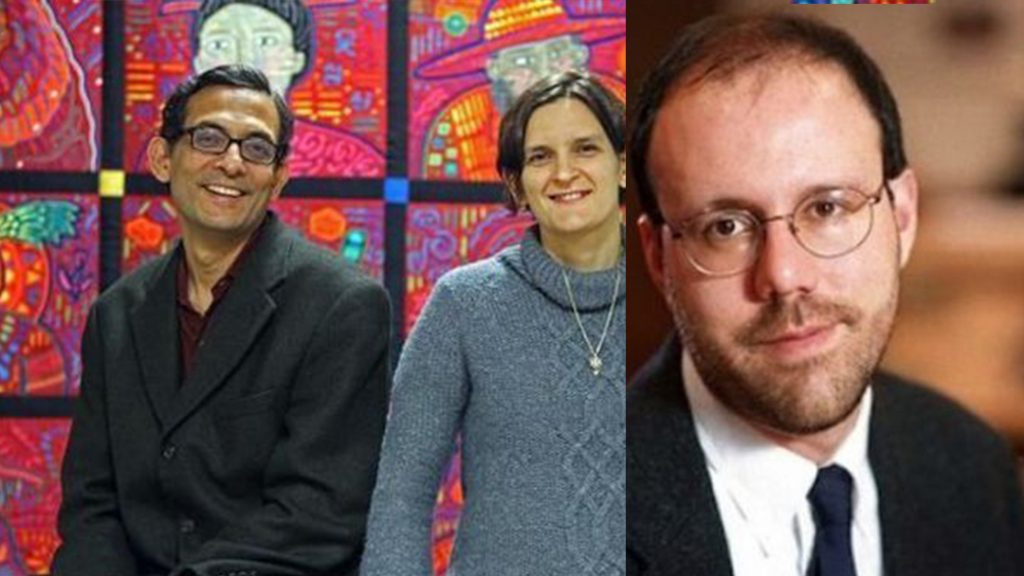Stockholm: Indian-American Abhijit Banerjee, his wife Esther Duflo and Michael Kremer jointly won the 2019 Nobel Economics Prize on Monday ‘for their experimental approach to alleviating global poverty’.
Abhijit Banerjee and French-American Esther Duflo both work at the prestigious Massachusetts Institute of Technology while Kremer is at Harvard University. Duflo is the second woman and the youngest ever to win the economics Nobel.
The prize includes nine million-kronor (USD 918,000) cash, a gold medal and a diploma. The winners will equally share the prize money.
“The research conducted by this year’s Laureates has considerably improved our ability to fight global poverty. In just two decades, their new experiment-based approach has transformed development economics, which is now a flourishing field of research,” the Royal Swedish Academy of Sciences said in a statement.
They have introduced a new approach to obtaining reliable answers about the best ways to fight global poverty. Their ‘research findings – and those of the researchers following in their footsteps – have dramatically improved our ability to fight poverty in practice,” the statement added.
As a direct result of one of their studies, more than five million Indian children have benefitted from effective programmes of remedial tutoring in schools. Another example is the heavy subsidies for preventive healthcare that have been introduced in many countries, the statement further said.
“Showing that it is possible for a woman to succeed and be recognized for success I hope is going to inspire many, many other women to continue working and many other men to give them the respect they deserve,” Esther Duflo said at a press conference soon after the announcement.
Abhijit Banerjee, 58, was educated at the University of Calcutta, Jawaharlal Nehru University and Harvard University, where he received his PhD in 1988. He is currently the Ford Foundation International Professor of Economics at the Massachusetts Institute of Technology, according to his profile on the MIT website.
In 2003, Banerjee founded the Abdul Latif Jameel Poverty Action Lab (J-PAL), along with Duflo and Sendhil Mullainathan, and he remains one of the lab’s directors. Abhijit Banerjee also served on the UN Secretary-General’s ‘High-level Panel of Eminent Persons on the Post-2015 Development Agenda’.
Duflo, born in 1972, is the Abdul Latif Jameel Professor of Poverty Alleviation and Development Economics in the Department of Economics at the Massachusetts Institute of Technology and a co-founder and co-director of the Abdul Latif Jameel Poverty Action Lab (J-PAL).
With Banerjee, she wrote ‘Poor Economics: A Radical Rethinking of the Way to Fight Global Poverty’, which won the Financial Times and Goldman Sachs Business Book of the Year Award in 2011 and has been translated into more than 17 languages.
Duflo has received numerous academic honours and prizes including the Princess of Asturias Award for Social Sciences (2015), the A.SK Social Science Award (2015), Infosys Prize (2014), the David N Kershaw Award (2011), a John Bates Clark Medal (2010), and a MacArthur ‘Genius Grant’ Fellowship (2009). She is the Editor of the ‘American Economic Review’, a member of the National Academy of Sciences and a Corresponding Fellow of the British Academy.
PTI
